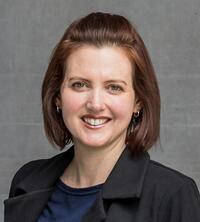Abstract:
Airborne microplastics in a changing climate
Microplastics are ubiquitous contaminants in rivers, oceans, and soils. In recent years, it has become increasingly apparent that microplastics (and nanoplastics) are ubiquitous in the atmosphere. Due to their small size and low density, microplastics can be transported over large distances through the atmosphere. Recent evidence suggests that once deposited in the ocean, microplastics may be emitted back into the atmosphere when waves break, and bubbles burst. Atmosphere-ocean coupling, therefore, plays a complex role in the ‘plastic cycle.’ As well as being damaging to ecosystems and harmful to human health when inhaled, my group’s research shows that airborne microplastics may make a minor contribution to global radiative forcing, particularly in future as their abundance grows.
In this seminar, I will give an overview of how airborne microplastics could contribute to climate change in the 21st century by known and yet-to-be-quantified pathways. I will also present research carried out by my group on sampling airborne microplastics in remote regions of the Southern Hemisphere – including the Southern Alps of New Zealand, the Southern Ocean and Antarctica. I will discuss challenges in airborne microplastic sampling and analysis, and lessons learned by my group in designing our first deposition collection experiment.
Short bio:
Laura Revell is a Royal Society Te Apārangi Rutherford Discovery Fellow and an Associate Professor in the School of Physical and Chemical Sciences at the University of Canterbury in New Zealand. She gained her Chemistry PhD from the University of Canterbury in 2012 before relocating to Switzerland where she worked as an ETH Zurich postdoctoral fellow between 2013-2015 on the Chemistry-Climate Model Initiative. On returning to New Zealand, she became involved with the development of the New Zealand Earth System Model, which is based on the UK Met Office Unified Model. She now leads the Deep South National Science Challenge’s ‘Cloud and Aerosols’ Earth System Modelling project.
Laura’s research interests include stratospheric ozone in the 21st century, including the potential impacts of rocket emissions from the burgeoning space industry, and modelling Southern Ocean aerosols. Her group also study airborne microplastics in remote regions of the Southern Hemisphere, and their potential influences on climate. Laura is the lead author of a paper published in Nature in 2021 exploring the direct radiative effects of airborne microplastics. In 2021 she was awarded the Royal Society Te Apārangi Cooper Award for early career research excellence in technology, applied science and engineering.
What is the Joint Oslo Seminar (JOS):
- Atmospheric and climate sciences have a stronghold in Oslo among the four institutions University of Oslo, the Meteorological Institute, CICERO and NILU.
- This joint seminar invites renowned international experts to contribute to an informal series of lectures, meant to create interaction with the Oslo atmospheric and climate science community on recent highlights and analysis in the field.
- All seminars will be held on Thursdays (12:15 pm -1 pm).
